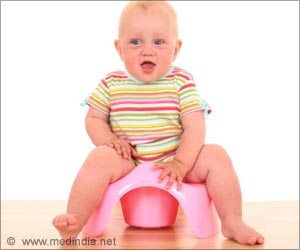- Harrison’s Principles of Internal Medicine.
About
Constipation is often a result of faulty habits. It could also be caused by conditions affecting the digestive tract, general muscle diseases and systemic conditions.
Constipation is a troublesome symptom wherein the patient suffers from persistent, difficult, infrequent and seemingly incomplete passing of stools. Most people have at least 3 bowel movements per week. But a decrease in frequency alone does not amount to constipation. Some people may have a normal frequency but suffer from other problems like excessive straining, hard stools, a feeling of fullness or incomplete evacuation.

Various causes of constipation are listed below:
Faulty habits: Faulty habits that contribute to constipation include:
- Excessive use of laxatives
- Prolonged travel
- Insufficient fiber or fluid in diet
- Habitual ignoring or delaying bowel movements
Cultural factors may also play a role in the development of constipation. A person may become greatly concerned with the absence of a bowel movement if the parents give a lot of importance to daily bowel movement. Some children may withhold bowel movements to gain attention.
Intestinal Problems: Problems in the small and large intestines that could lead to constipation include:
- Irritable bowel syndrome, constipation predominating or alternating: In irritable bowel syndrome with constipation, the patient suffers from fewer than three bowel movements per week, hard or lumpy stools, and /or straining during bowel movements. Diagnosis is usually based on exclusion of other causes of constipation.
- Mechanical obstruction in the intestines: Obstruction to the passage of stools in the intestines can be caused by conditions like cancer, stricture formation (an abnormal narrowing by fibrous or other tissues), foreign bodies, hernia and volvulus (twisting of the intestine). The patient may complain of distention of the abdomen, pain, fullness and gas, bad odor in breath and vomiting along with constipation.
- Colonic pseudo-obstruction: Colonic pseudo-obstruction occurs in the absence of a mechanical cause of obstruction. It could occur due to conditions like paralytic ileus, slow-transit constipation, and megacolon (Hirschprung’s, Chagas). Paralytic ileus, a condition where the motility of the intestines is inhibited, results in pseudo–obstruction and constipation. It could be a result of electrolyte abnormalities, complication of surgery, obstruction in blood supply to the intestines, intra-abdominal infection, kidney or lung disease or the use of certain medications. Slow transit constipation occurs due to a neuromuscular problem in the intestinal wall that reduces motility of the intestines. It is characterized by infrequent bowel movements, uncontrolled soiling, abdominal pain, nausea and poor appetite. Megacolon could occur in babies due to lack of nerves in the colon (the condition is called Hirschprung’s disease), or in adults due to a parasitic infection (the condition is called Chagas disease).
- Acute abdomen: Conditions that cause an acute severe pain in the abdomen like appendicitis (inflammation of the appendix), salpingitis (inflammation of the fallopian tubes in women), perforation and colic can cause constipation. The features of the underlying conditions are usually obvious in these cases.
Rectal Problems:
Disorders of rectal evacuation: The rectum is the lowermost part of the large intestine just above the anus. Patients with disorders of rectal evacuation complain of incomplete rectal emptying, a feeling of rectal fullness and straining while passing stools. The problem of rectal evacuation may be due to:
- Structural defects: These include
- Excessive pelvic floor descent: The pelvic floor consists of muscles, ligaments and fascia that provide support to pelvic organs and controls continence of the anus as well. Excessive pelvic floor descent may be associated with constipation.
- Rectocele: Rectocele is a condition where the anterior wall of the rectum bulges forward. Thus, the bulged portion may continue to remain filled even after defecation.
- Intussusception: Intussusception is a condition where one part of the intestine tunnels into another. It may be accompanied by symptoms like severe abdominal pain that comes and goes, blood in stools, nausea and vomiting.
- Functional defect:
- Anismus (Functional pelvic incoordination): Anismus is the inability to relax the muscles of the pelvic floor voluntarily during defecation, thus leading to constipation.
In some cases, both structural and functional defects may be observed.
Anal Problems:
Anal sphincter spasm: Painful anal conditions like anal fissure and painful piles can cause spasm of the anus and constipation.
Generalized muscle disorders:
Muscle disorders like progressive systemic sclerosis, scleroderma, myopathies and myotonia can also result in constipation.
Systemic causes:
Other causes that can result in constipation include:
- Endocrine problems: Hormonal conditions like hypothyroidism (low thyroid hormone levels), hypercalcemia (increased calcium levels), pregnancy and hypokalemia (low potassium levels) could decrease intestinal contractions and result in constipation.
- Psychiatric disorders: Depression and eating disorders may also cause constipation.
- Neurologic disease: Diseases affecting the brain and nerves like Parkinsonism, multiple sclerosis and spinal cord injury can result in constipation.
- Medications and poisoning: Drugs like calcium channel blockers, antidepressants, opioids, atropine and tricyclic antidepressants decrease the contractions of the intestines leading to constipation.
Frequently Asked Questions
1. Which doctor should I visit in case I suffer from constipation?
You should visit your family doctor / general practitioner to treat constipation. He may refer you to a gastroenterologist if required.
2. How can I prevent constipation?
Constipation can be prevented by taking adequate fluid and fiber in diet and engaging in regular exercise.
3. What medications are used to treat constipation?
Besides the diet and lifestyle changes mentioned above, laxatives or











